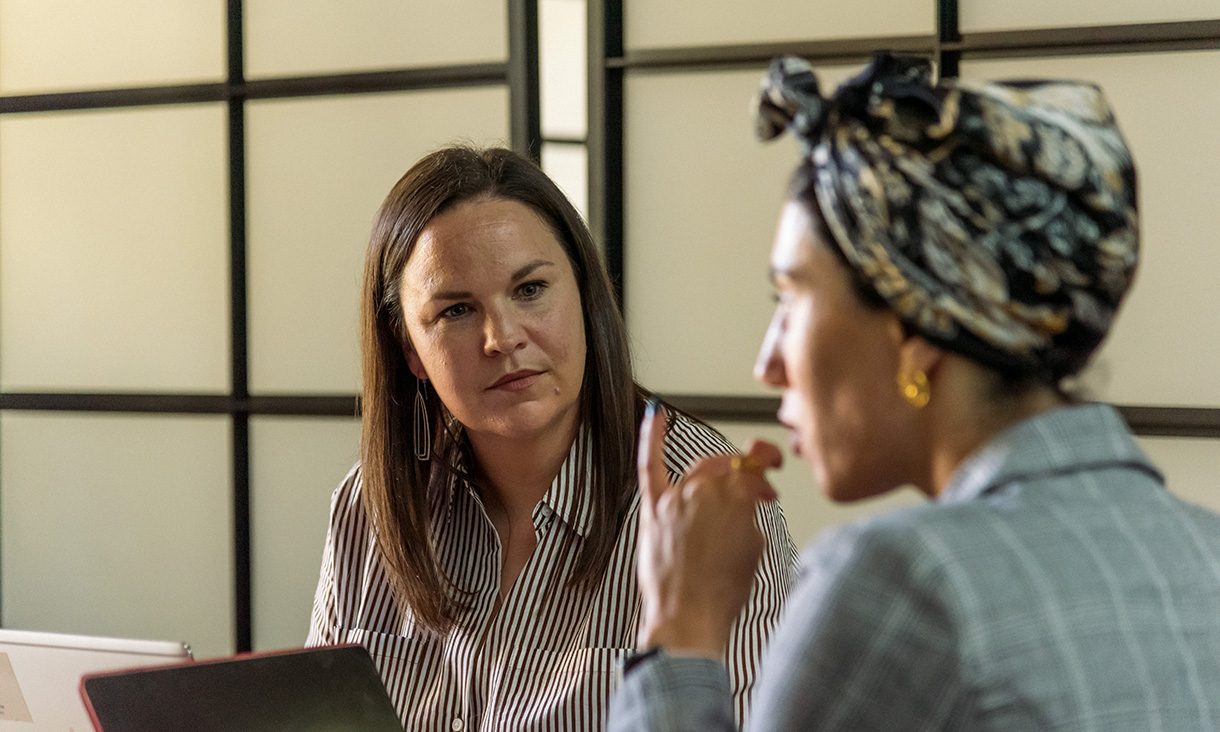Signs upskilling or a career change could be what you need
If you’re weighing up the need to upskill or a career change later in life, it’s likely you’re not feeling quite as fulfilled in your current role or industry, or you believe in your potential and want to get something extra out of yourself.
Here are three signs it might be time to make a move and reignite your professional spark no matter your age:
- You value lifelong learning and find yourself motivated by the prospect of change or a new challenge.
- You feel you’re stagnating in your current position or industry and have identified new areas for professional or personal growth.
- You’ve got plenty to give and you know you’re not reaching your full potential just yet.
Four steps to upskill or make a career change
When you become entrenched in your career, it’s easy to carry on being comfortable. Change is never easy, however more often than not, it leads to growth and transformation.
Embracing that can be daunting, but if you’re informed about your options and what upskilling or a career change would require of you, you could end up on a very rewarding new path.
Step 1: Take confidence in your credibility and experience
When seeking progression or a change of career later in life, try not to view age as a limitation or barrier, because in fact, it could be one of your biggest strengths.
As a senior professional, you know what it takes to succeed in the workforce. You understand the discipline and work ethic required, and already have a wealth of experience and soft skills such as communication, project management and problem-solving, which will be transferrable to any role or industry.
So, consider upskilling as sharpening or improving the way you do things currently and use your credibility to your advantage when going for a new role or one that might be left of field to your current or former industry.
Step 2: Tackle uncertainty head on
Uncertainty can be unsettling, but knowledge really is power.
So, if you’re sitting on the fence about pursuing the next step in your career, or are letting the fear of the unknown get in the way, dedicate time to discovering all your options, understanding why you’re seeking change and what you want to gain by making a shift.
To help with this, consider asking yourself these three questions:
- Is there a role or industry that would be better aligned to my interests and aspirations?
- What skills could I develop for personal and professional growth, and how could these help me achieve my career goals?
- What does my ideal workplace environment look like to support my career trajectory, as well as encourage me to support others?
Step 3: Investigate the knowledge and skills you need
Whether you’re wanting greater autonomy, seeking a position of leadership, or committed to exploring a new industry, it’s important to investigate exactly what will be required from a knowledge and skills perspective.
RMIT has a range of short courses to advance or refine your skills, and help you get up to speed with the latest technology.
Alternatively, if you’re striving to become a leader in your field or enter a different industry, RMIT’s postgraduate courses could help you get to where you want to be, with courses across a wide range of industries.
Step 4: Network!
Use your years of experience and the connections you’ve forged along the way to your advantage. Get insight from other professionals who are in the field or position you desire to be in, who have a similar professional background and career trajectory, or who have also changed direction or returned to study.
This can help you grasp what’s required in a new role, while also getting an understanding of any opportunities you might be suited to, or the job market in a less familiar space.
As an RMIT alum, don’t forget to leverage the RMIT Alumni network! Your peers may have undertaken a short or postgraduate course, or taken the leap into a new career, so be sure to seek their advice and ask about their experiences. If you’re not already a member, join RMIT’s official Alumni LinkedIn Group!
RMIT promotes lifelong learning, no matter how long it’s been since you graduated. RMIT is offering domestic students a 10% bursary on all full-fee postgraduate coursework programs within RMIT’s College of Business and Law.
Story: Jacqueline Guldon



